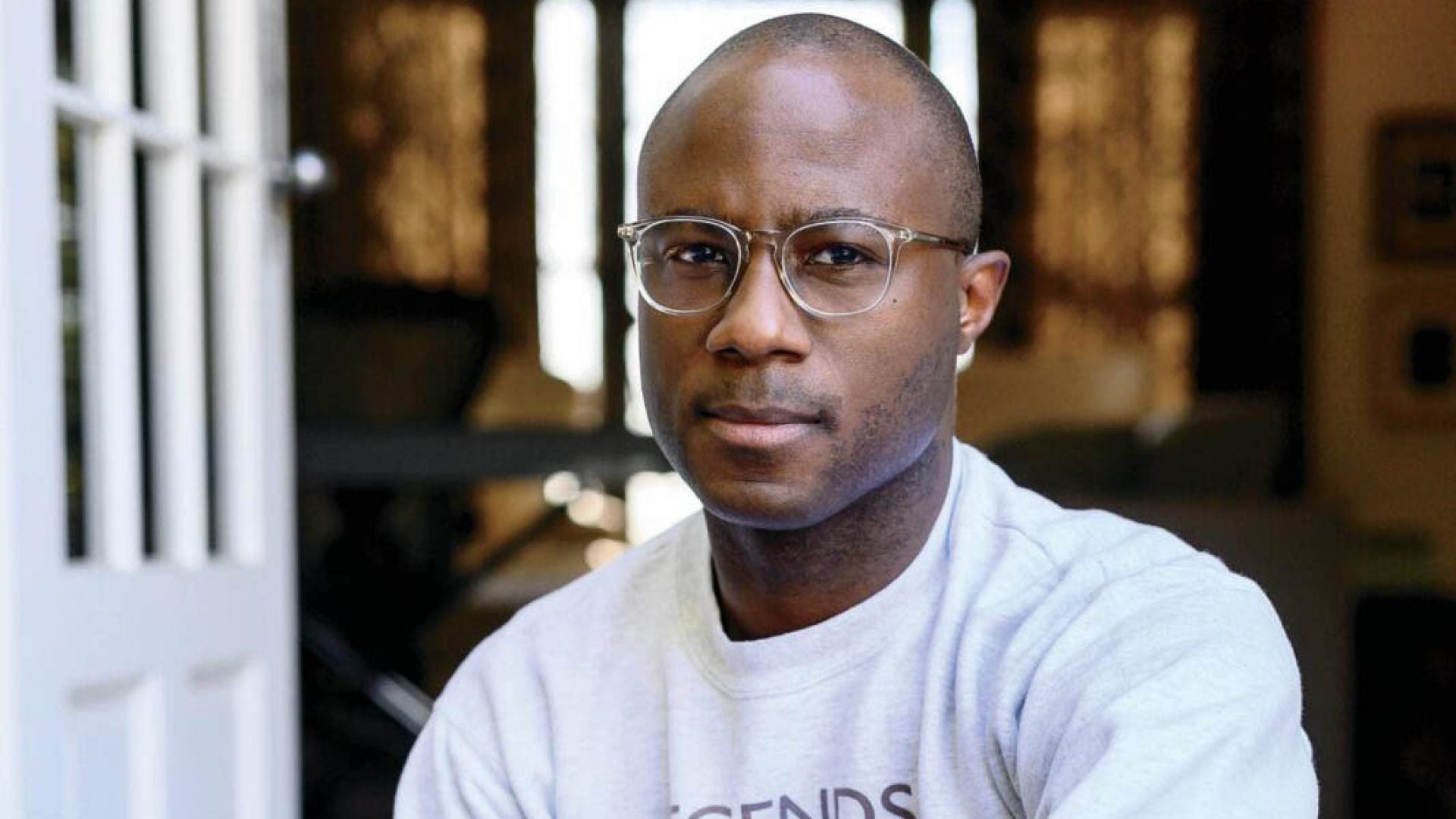
A version of this article originally appeared in the March/April issue of ESSENCE magazine, available on newsstands now.
There’s something special about Black creatives, and American culture owes so much to them. Through every major event—good or bad—Black creatives have helped us survive and thrive. Let’s just look at the relentless year of 2020. We experienced everything from a global pandemic, a presidential impeachment, a monumental election that included our first Black vice president, and racial unrest and racial injustice protests across the world. Yet, through all of this there were books, songs, movies and television shows that kept us entertained and educated, comedy specials, recipes that everyone wanted to try, hand-crafted items that made retail therapy a must, and viral TikTok videos and challenges, all by Black creatives that gave us joy, hope, and a smile.
ESSENCE had a chance to talk with some undeniably talented Black creatives and find out more about who they are, what drives their creativity, and why creativity drives them.

Kerby Jean- Raymond
Founder, Pyer Moss
Raised in Brooklyn’s East Flatbush, fashion designer and activist Kerby Jean-Raymond launched Pyer Moss in 2013. Five years later, he won the CFDA/Vogue Fashion Fund award, and in 2020 he received another CFDA Award, this time for American Menswear Designer of the Year. While fashion insiders have long praised his work, including the culture-shifting 2019 runway show “Sister” — in homage to the original Black girl who rocked, Sister Rosetta Tharpe — the rest of the world learned his name when it swooned over the custom camel overcoat he designed for Vice President Kamala Harris, which she wore on the eve of her inauguration. For this son of Haitian immigrants, dressing the first Black woman VP sent a larger message: “We need [everyone] to be accountable to Black people in this country,” says Jean-Raymond. “Wearing Pyer Moss doesn’t absolve anyone from doing the work. Instead, it’s a commitment to go above and beyond.” — Nandi Howard
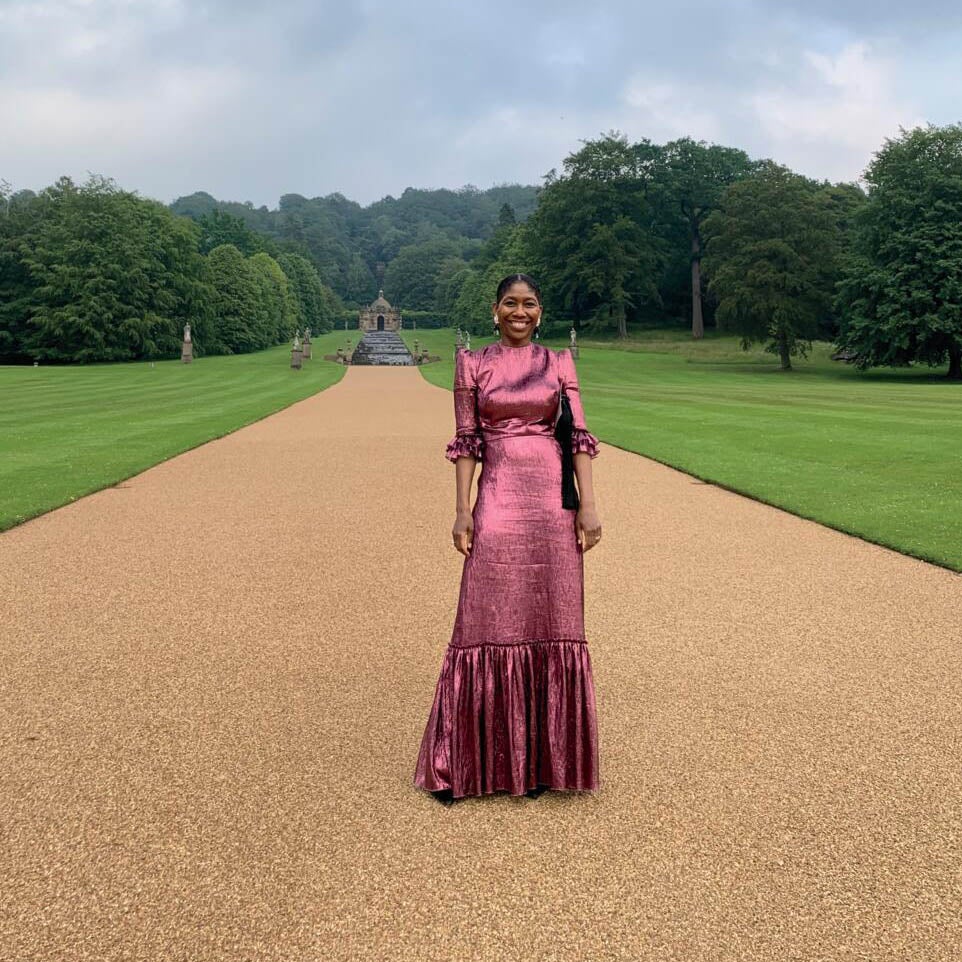
Kenya Hunt
Fashion Director and Author
When Virginia-raised fashion editor Kenya Hunt got a job offer as global style director at London’s Metro International newspapers, it was one she couldn’t refuse. The American in London has since risen in the ranks of the U.K.’s top publications, including Elle and Grazia U.K., where she now serves as deputy editor, a role she cherishes as a global Black creative who didn’t grow up on couture. “I came to fashion as an outsider,” Hunt writes in her memoir, Girl, Gurl, Grrrl: On Womanhood and Belonging in the Age of Black Girl Magic. “My earliest memories of fashion was listening to my mother and aunts recount attending Ebony Fashion Fair.” She continues to be inspired by the Black women in her life. “One of the things I’ve loved most is this collective spirit of lifting as we climb, happening among Black image-makers, on both sides of the Atlantic,” she says. — N.H.
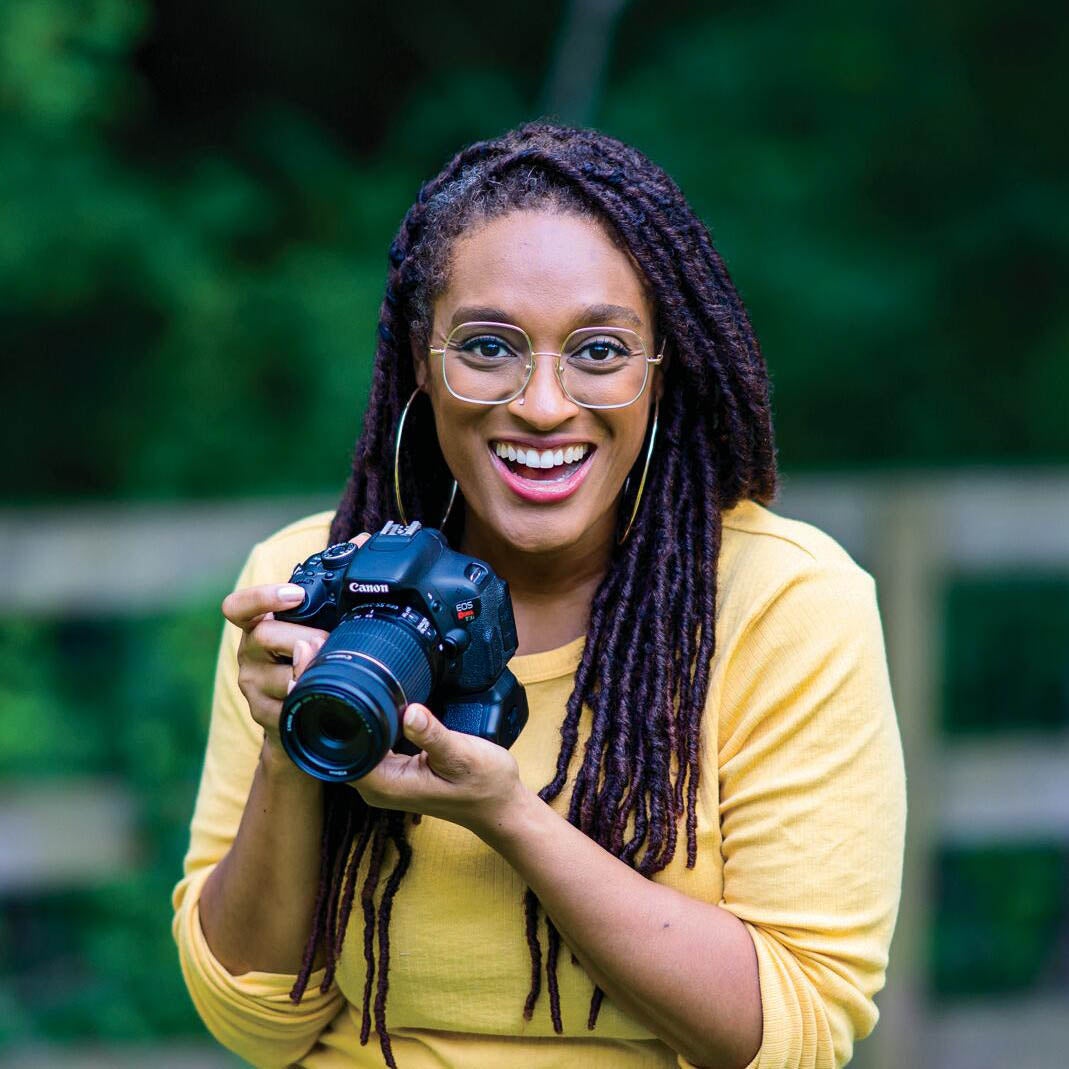
Latoya Moore-Broyles
Crafter and creator, MyFroggyStuff
If “be who you are because it’s more fun that way” were a person, it would be the wife and mother of two who’s also the woman behind MyFroggyStuff. “I never grew up, so MyFroggyStuff is a creative space where everything goes, and anyone’s welcome,” says Latoya Moore-Broyles, who can also be seen as a judge on HBO Max’s Craftopia.
Most people know MyFroggyStuff as a mother-daughter collaborative doll- and miniature-crafting YouTube channel that has amassed more than 2.3 million subscribers. While Moore-Broyles and her 15-year-old daughter, Bella Broyles, inspire millions with their creations, they also thrive on being inspired. “I totally take from whatever I see,” Moore-Broyles says. That includes reimagining dolls based on Beyoncé at Coachella and Shuri from the award-winning Black Panther.
Today, the Atlanta-based brand is hugely successful—and to think it all started with Moore-Broyles accidentally publicly posting home videos for her mother and in-laws, who don’t live in the same state, to see their grandkids. “Other people started watching the videos of us playing with the dolls and were like, ‘How did you make that?’ So I started showing people how we made things, and it just turned into this giant crafting-toy phenomenon.”
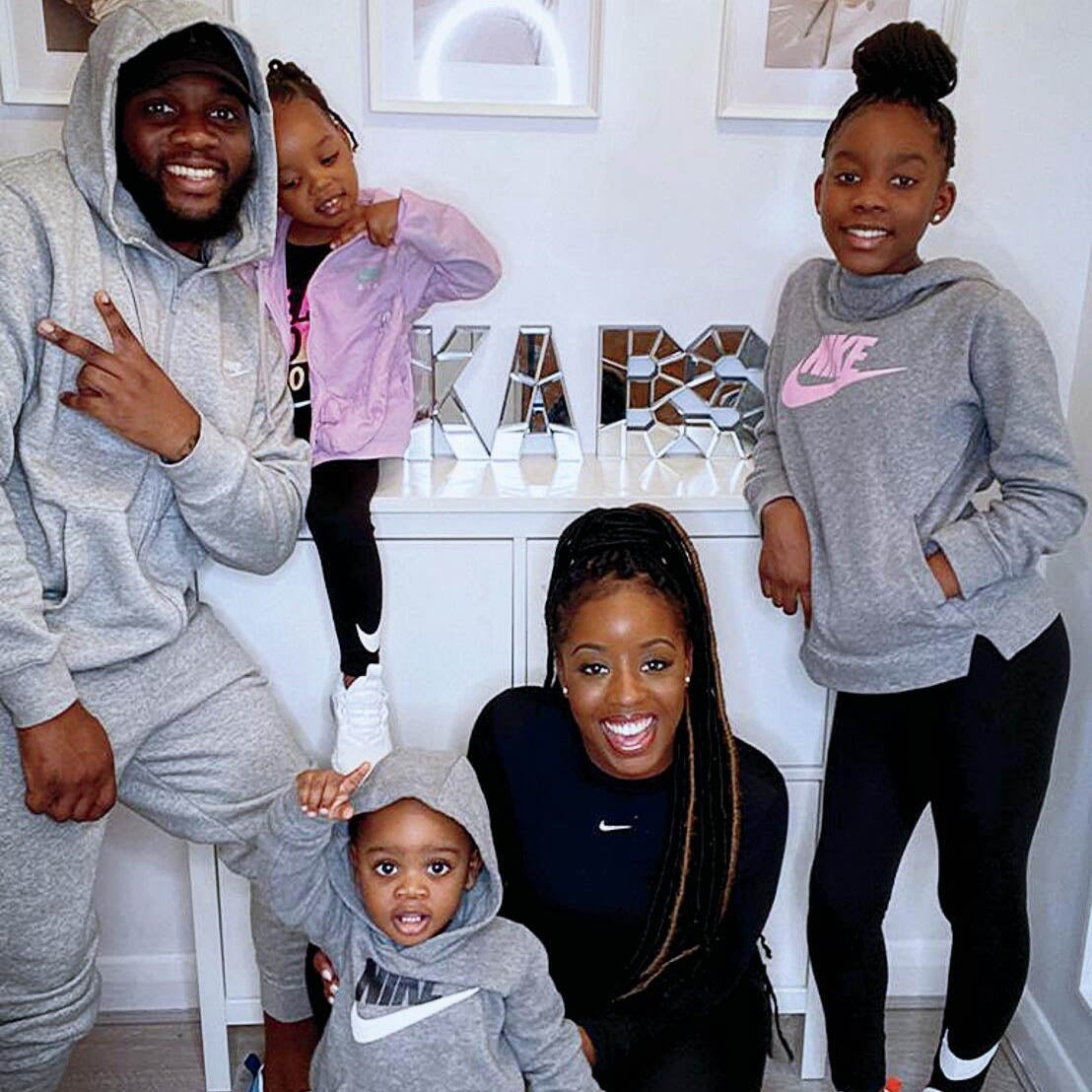
The Kabs Family
Video creatives
The Kabs family—Chan, the mom, Tay, the dad, and their three children, 11-year-old Teija, 4-year-old Maliya and 1 1/2-year-old TJ —have become one of our favorite U.K. families since their first video went viral in October 2018. It was a father-daughter car sing-along moment, with then 1-year-old Maliya bopping to the widely popular “Baby Shark” song. She held her own with “Finesse” by Bruno Mars and Cardi B. She even sang (some of the words) New Edition’s “Candy Girl.”
Those special moments in the car warmed our hearts, so we were thrilled when the videos kept coming. Soon, more kids got involved and the Kabs videos became a true family affair. Whether they are having a daddy-daughter rap battle in the front seat, sharing the story of Chan and Tay’s marriage proposal or enjoying family game night, the Kabs have garnered more than 100 million video views and millions of followers and subscribers on their social media platforms.
Chan and Tay, both 30 years old and now full-time content creators, have been together for nearly 18 years, and they are completely comfortable sharing their lives with the world. “We’re just showing home life,” Tay says. “There are times when you might see us debating, or being loving, and sometimes we’re fighting, so you just never know what you’re going to see when you go into our videos.”
When it comes to the source of their inspiration, Chan is clear. “Family,” she says. “It’s a big thing for us. A lot of people say it’s not common for a Black family to be together—whereas we just see it as normal, and we want [others] to see it as the norm, too.”
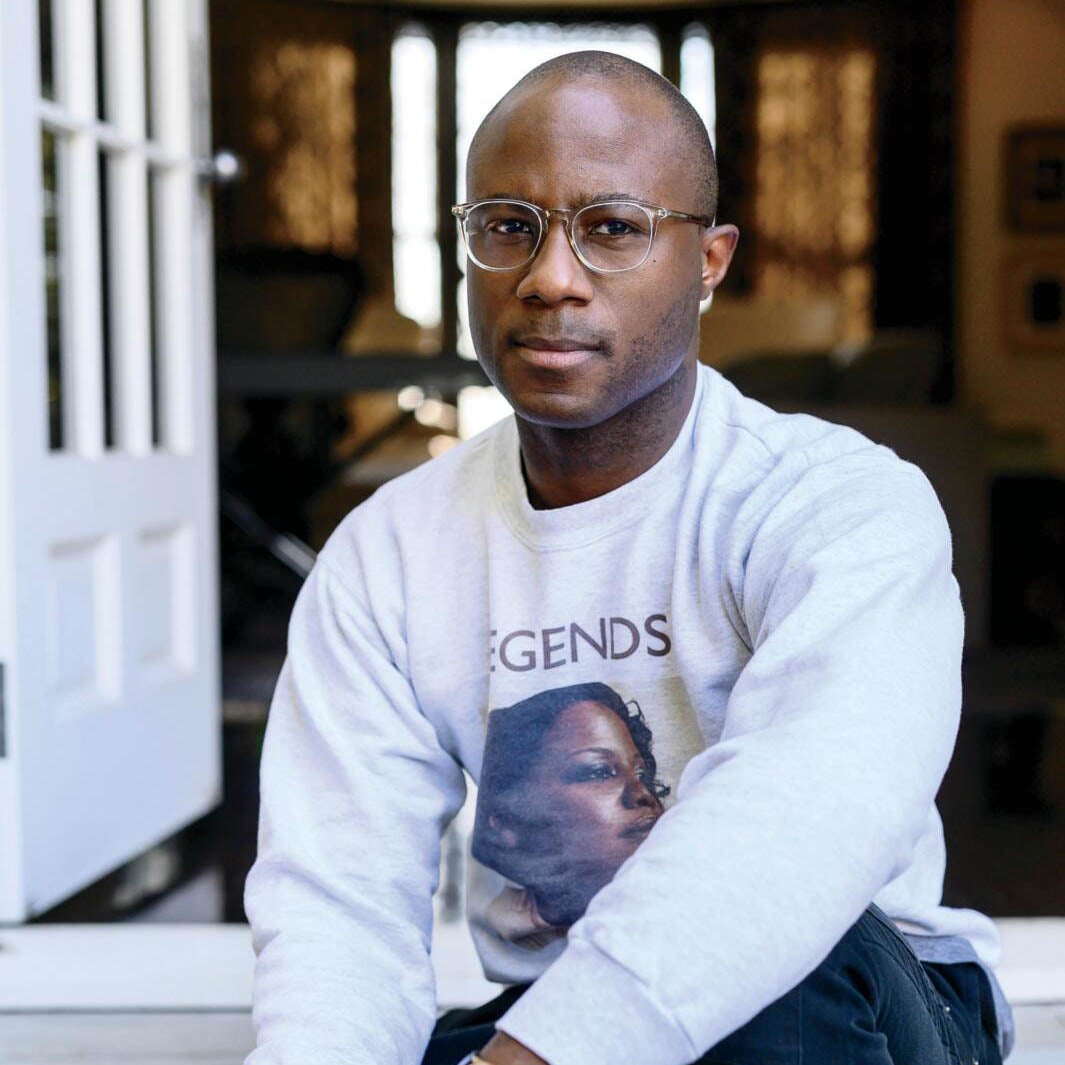
Barry Jenkins
Academy Award-winning director, screenwriter and producer
Moonlight and If Beale Street Could Talk, two masterful pieces of art, were both helmed by Barry Jenkins. Today, the 41-year-old native of Liberty Heights, Miami, is widely lauded for his prodigious talents—but for the young Jenkins entering Florida State University, this was hardly foreseen. “When I first started film school, I didn’t know how to make movies the way the other kids did—and I’m talking about just the craft of making movies,” he says. “I had to ask myself, Is that because I grew up poor and Black in the projects, or do I just not know how to do this because I haven’t had the experience?”
Jenkins continued studying creative writing but took a year off from film school to teach himself filmmaking and, ultimately, he was able to answer his question. “I came back, and my work was just as strong as anybody else’s,” he recalls. “In some ways, it might have been stronger. And that’s the moment where I thought, OK, these limitations that I think the world is placing on me, I don’t have to accept them.”
Since then, he’s been focused on telling impactful stories that contribute to larger conversations—like the much-anticipated Amazon Original limited series The Underground Railroad, his adaptation of the Pulitzer Prize–winning novel by Colson Whitehead. It arrives May 14.
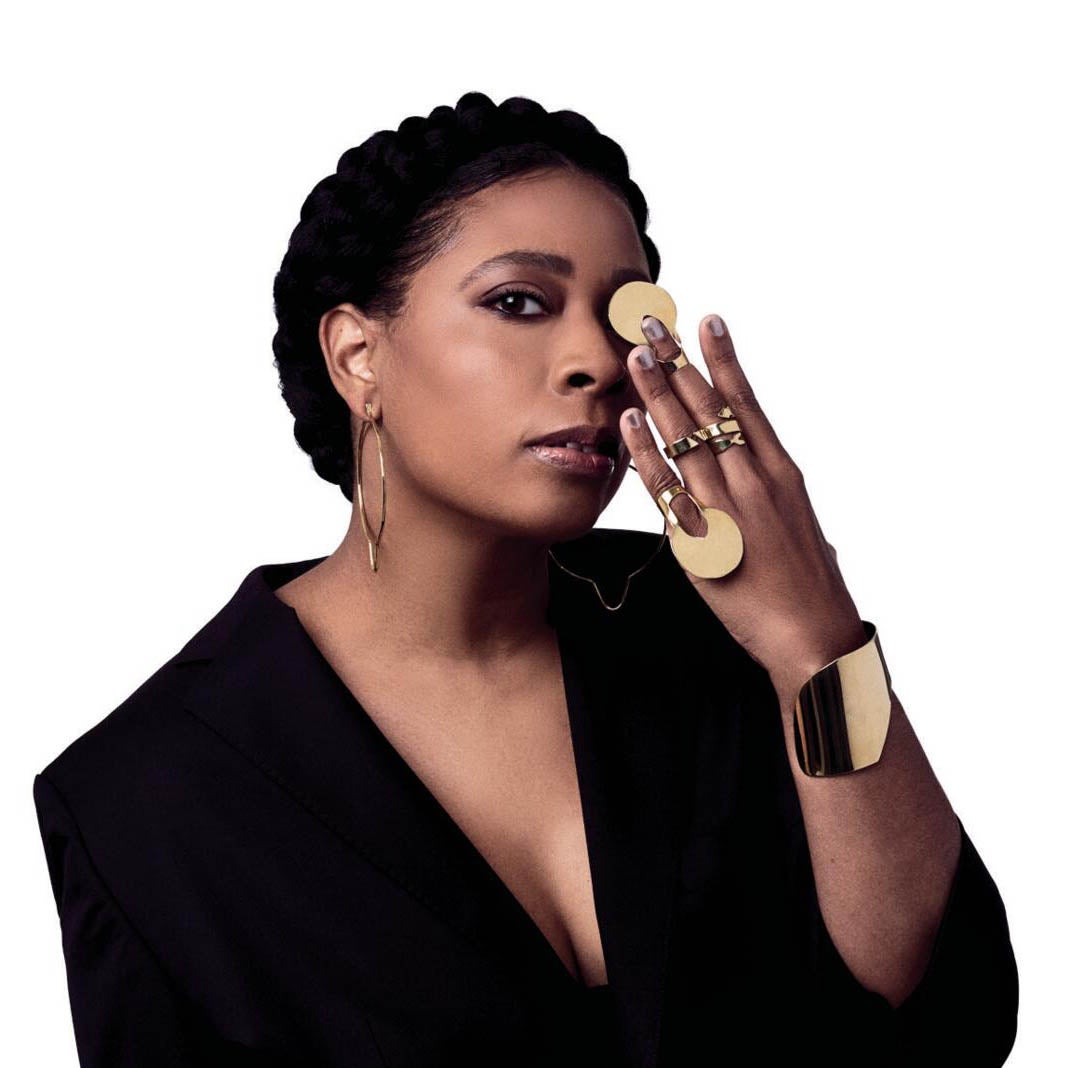
Lorraine West
Jeweler
Visionary jeweler Lorraine West won her first art contest at eight years old. From that moment on, she thought of herself as an artist—and made sure that everyone knew it. Her confidence and her fearlessness in pursuing her goals was learned from watching her first teachers: her parents.
“My dad was a carpenter and taught himself everything,” says the 45-year-old Brooklyn-based designer. “Subconsciously, I was picking up that energy, that resilience to move forward [even if at first], you don’t know what you’re doing.” When it comes to jewelry making, it’s hard to believe that she stumbled upon her gift. “One day during my junior year at the Fashion Institute of Technology, I walked past a jewelry supply store,” explains West. “Something just told me, Why don’t you buy some pliers, beads and wire? Next thing you know, I was like, ‘I really like this.’”
As fate would have it, West met Erykah Badu in 1997 at a poetry reading, which serendipitously led to Badu and her friend Andre 3000 being her first celebrity clients two years later. Today, the award-winning creative genius literally has her work hanging from everyone’s earlobes. And by “everyone,” we mean even the queen herself. When Beyoncé proudly proclaims “Drip all on me” in “Black Parade,” that drip includes West’s bold, brass Abstract Palette earrings that Bey donned for her Black Is King visual album.
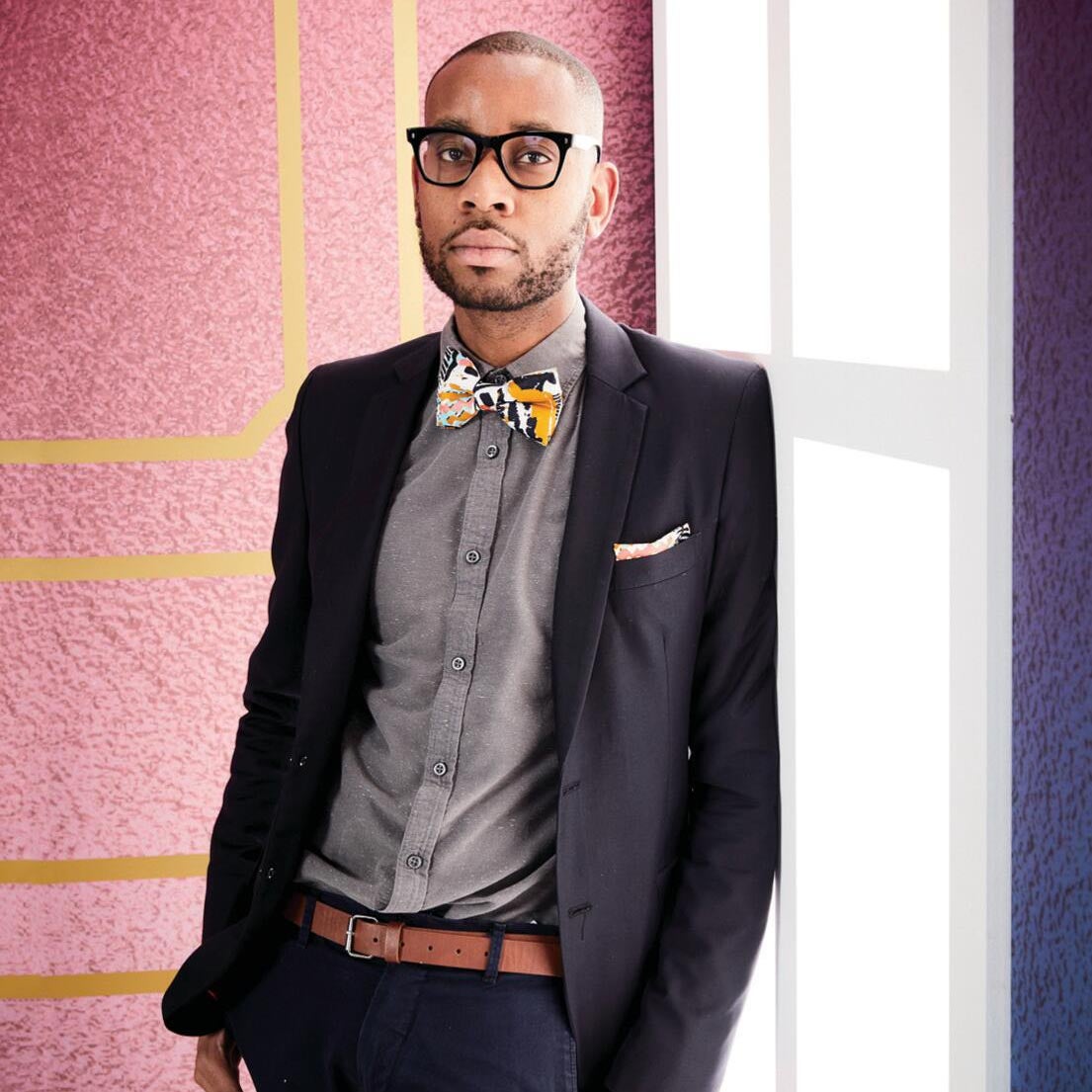
Kudzi Chikumbu
Director of Creator Community, TikTok
“I was in a serious car accident—and not to be dramatic, but I remember being faced with my mortality [afterward], which was a light-bulb moment for me,” says Kudzi Chikumbu, director of creator community for TikTok, the app that saved so many of us from completely drowning in the abyss that was 2020.
As an African child, Chikumbu knew the expectations of him clearly: medicine, law, finance or engineering. And for as long as he could, the Zimbabwe-born, South Africa–raised 33-year-old kept his head down in spreadsheets and ignored his passion for creativity. But as fate would have it, his brush with death inspired him to finally pursue life on his own terms. “I [realized] I needed to turn my life into more of a creative one and give other people the opportunity to do the same,” he says.
After graduating with an M.B.A. from Stanford, he found his home at Musical.ly—now TikTok—helping to nurture a diverse community of makers; and he found his joy in “empowering people to understand that they are creative and that they have the skills to take their creativity to the next level,” he shares. “I think of creativity as my self-care, my gym,” he adds. “I need to create stuff to feel happy and healthy. It brings me joy.”
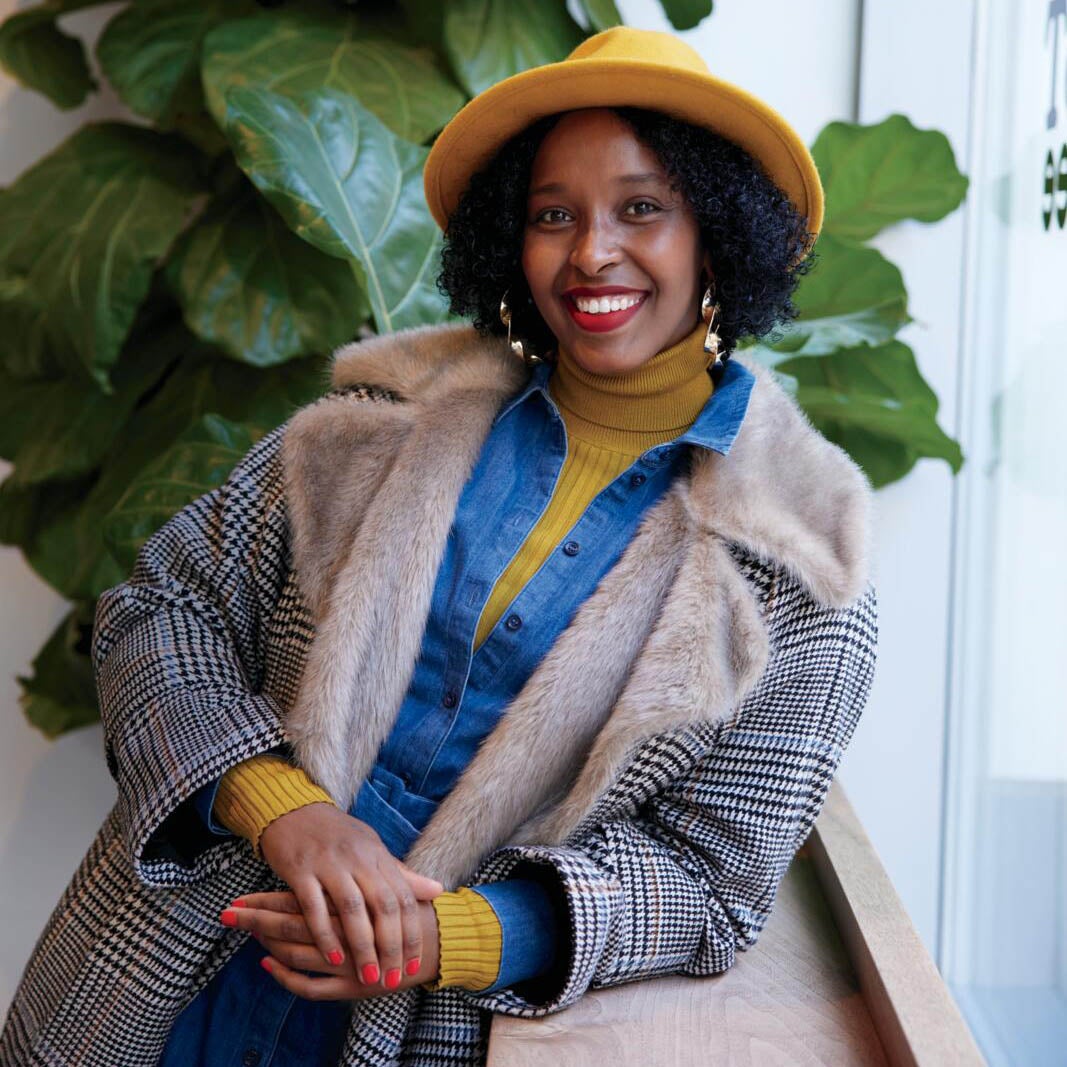
Hawa Hassan
Cookbook author and culinary entrepreneur
“My greatest inspiration has been my mother,” says Hawa Hassan, a community organizer from Somalia. “She’s always had the audacity of hope—long before it was trendy. She’s had to uproot her life and start over and over again due to migration, civil war and divorce, and she’s always done it from a place of, ‘And on we go,’ never from a place of despair.”
In the midst of Somalia’s civil war, in 1993, Hassan’s mom, who had 10 children, made the hard decision to send Hawa to Seattle with a group of refugees. She was 7 years old and alone; she didn’t see anyone in her family again until 2008. “I’d always longed for connection to my origins and to my family—and the older I got, the more I craved that,” explains the 35-year-old founder and CEO of condiment line Basbaas. “And I felt one way to connect with them was through food.”
In late 2020, Hassan, now based in Brooklyn, published In Bibi’s Kitchen, a cookbook of recipes and stories of tradition from grandmothers who hail from eight African countries that touch the Indian Ocean.